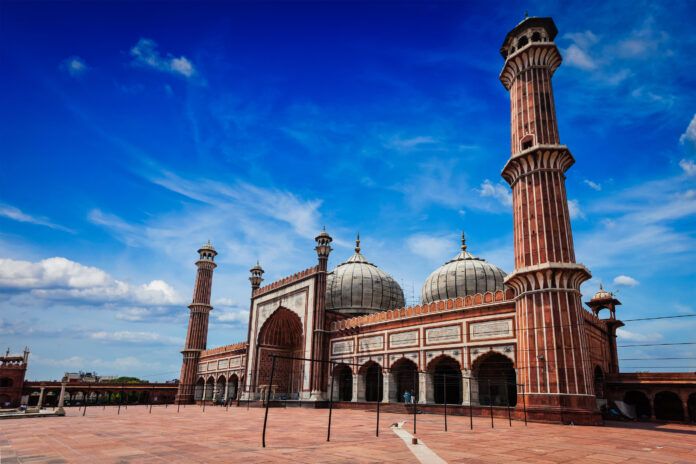The Waqf Amendment Bill 2024, which is currently going through the Indian Parliament, has been described by Dr Zakir Naik as an “attempt to usurp the land of the Muslims.”
The bill was presented to Parliament in August by Kiren Rijiju, India’s Union Minister of Minority Affairs, and was unanimously denounced by opposition parties as “divisive,” “anti-minority” and “unconstitutional.”
In a nutshell, it envisages limiting the authority of Islamic Waqf boards (which are major landholders) to manage their properties and aims to increase government regulation of them.
It also aims to put non-Muslims on Waqf boards and increase women’s representation as well.
Indian opposition parties claim that the amendments are intended to deprive the Muslim community of their land, assets and rights guaranteed to them under Article 26 of the Indian Constitution, which includes freedom to manage religious affairs.
In response, the Islamophobic ruling BJP government maintains that the demand for regulation of Waqf properties comes from the Muslim community itself and is aimed at combatting mismanagement and creating more transparency.
What is a Waqf?
Subscribe to our newsletter and stay updated on the latest news and updates from around the Muslim world!
The term “Waqf” comes from an Arabic word that means “confinement” or “prohibition.” It refers to the act of dedicating property (movable or immovable) to God for charitable or religious purposes. Once a property is designated as “Waqf,” it remains so forever.
Proceeds from all Waqf properties are typically used to fund educational institutions, graveyards, mosques and shelters, benefitting a large number of Muslims.
Although the Quran does not explicitly mention the term “Waqf,” scholars often point to Surah Al Imran (3:92), which conveys the concept of righteousness through generous giving:
“You will not attain virtuous conduct until you give of what you cherish. Whatever you give away, Allah is aware of it.”
Additionally, various hadiths emphasise the importance of charitable giving and the spirit behind Waqf.
As per historical accounts, the first Waqf was established by Prophet Muhammad (pbuh) after his migration to Madinah. He dedicated a grove of 600 date palms for the benefit of the poor. This concept spread throughout Islamic lands, including India, where it became more prominent during the Delhi Sultanate.
Even though Waqf properties are endowed in the name of Allah, they are managed and administered by the Central Waqf Council, which is further regulated under the Central Waqf Act and related State Waqf boards.
What is a Waqf board?
A Waqf board is a legal entity with nominated members responsible for managing Waqf properties. The Waqf Act of 1995 established Waqf boards in every state and union territory of India. These boards manage the Waqf properties in their respective states and union territories.
The Waqf boards are India’s third-largest landholders, after the Railways and the Defence Department. They control 870,000 properties across India, which are spread over 940,000 acres and are estimated to be worth $12 bn.
Moreover, India has 32 Waqf boards, including two Shia Waqf boards in Bihar and Uttar Pradesh. The Waqf boards support mosques, shrines, graveyards, schools, colleges and hospitals, among other places.
As per the information available on WAMSI (Waqf Assets Management System of India), so far 785,934 immovable Waqf properties have been registered as of 2021.
Amendments in the past
The Waqf Act, initially introduced in 1954, has undergone several amendments (in 1964, 1984, 1995, and most recently in 2013) to reflect the views of scholars, religious leaders, and the broader Muslim community.
The objective has always been to ensure the effective and transparent management of Waqf properties. However, the actual implementation has not always aligned with these intentions.
The Waqf Act of 1954 was enacted by the Jawaharlal Nehru government, marking the first formal legislative effort to regulate Waqf properties in India. This law established the basis for the management and supervision of Waqf assets.

To further enhance the supervision of Waqf properties, the Central Waqf Council was established in 1964 to advise the government on matters related to Waqf administration and ensure proper governance.
In 1995, the act was amended, granting extensive powers to the Waqf Board to designate a property as “Waqf Property.” In cases where there is a dispute about whether a property can be considered a Waqf, Section 6 of the 1995 Act states that “the decision of the Tribunal in respect of such a matter shall be final.”
In 2013, the law was further amended to impose up to two years of imprisonment against encroachment on Waqf property and explicitly prohibit the sale, gift, exchange, mortgage, or transfer of Waqf property.
Now claiming mismanagement, the Modi government has proposed the Waqf (Amendment) Bill 2024, which Muslim bodies and opposition parties argue is anti-constitutional and politically motivated, and potentially undermines the autonomy of Waqf institutions.
The ruling government, however, maintains that the bill is intended to bring transparency and improve the functioning of Waqf Boards.
The debate persists as both sides consider the balance between religious autonomy and effective governance.
What are the proposed amendments?
In summary, the bill intends to limit the authority of Waqf boards in managing their properties and increase government regulation.
The bill suggests that registering with the District Collector’s Office should be mandatory for any Waqf property, allowing for proper evaluation.
Additionally, the bill states that any government property identified or declared as Waqf property, before or after the commencement of this Act, will not be considered as Waqf property. The District Collector will be responsible for determining whether a property is Waqf property or government land, and their decision will be final.
Once a decision is made, the collector can make necessary changes to the revenue record and submit a report to the state government. Furthermore, the bill specifies that the property will not be treated as Waqf property until the collector submits their report to the state government.
In the event of a dispute with the decision of the Waqf board, appeals can now be made in the respective high courts.
Currently, a property can be considered as Waqf even if its original declaration is questionable or contested. This provision was based on Islamic law, which often relied on oral dedication until documentation (waqfnama) became the accepted norm.
The bill aims to remove such provisions, allowing a Waqf property to be considered questionable or contested if a valid waqfnama is not present. The property cannot be utilised until a final decision is reached by the District Collector.
The amendments also grant the Central government the authority to order the audit of any Waqf at any time, to be conducted by an appointed auditor from the Comptroller and Auditor-General of India or by a designated officer from the Central Government.
Lastly, the bill aims to ensure women’s representation on the Central Waqf Council and state boards.
You can watch Dr Zakir Naik’s warning about the Waqf Amendment Bill here.






















